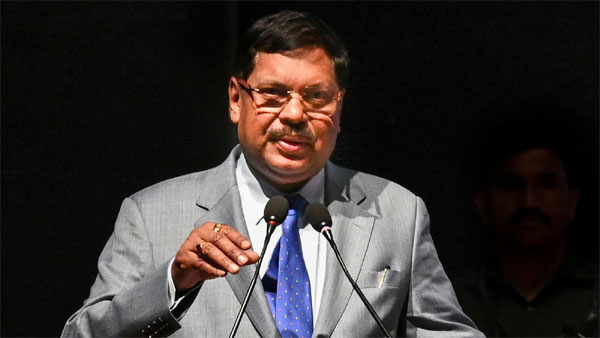Daijiworld Media Network - Panaji
Panaji, Aug 23: Chief Justice of India B R Gavai has made a compelling call to extend legal aid to the remotest corners of the country, stressing that rights are meaningless unless citizens are aware of and able to access them. Speaking at Goa’s V.M. Salgaocar College of Law on Saturday, CJI Gavai emphasized the importance of empowering people through legal awareness and strengthening the legal education infrastructure in rural and semi-urban (“mofussil”) regions.
“Unless the citizens know that they have the right to legal remedy, the remedy or the right will be of no help to them,” said the CJI, recalling his own experiences conducting legal aid camps in remote parts of the Northeast and Rajasthan.
In an address aimed particularly at aspiring lawyers, Gavai urged students to use their education in service of society. “You are the future of tomorrow’s India,” he told them, adding that true success lies not just in academic results but in determination, hard work, and commitment.

Applauding V.M. Salgaocar College’s initiative of offering office space to young lawyers starting their practice, the CJI encouraged other institutions to replicate such supportive measures. He also cautioned against focusing solely on National Law Universities (NLUs), saying many other law colleges are producing talented graduates and deserve investment and support.
His appeal comes at a time when India’s judicial system is under pressure from an overwhelming backlog of cases. According to data from the National Judicial Data Grid (NJDG) as of July 21, over 5.29 crore cases are pending across Indian courts — including 4.65 crore in district and subordinate courts, 63.3 lakh in High Courts, and 86,742 in the Supreme Court.
Further compounding the challenge, the lower judiciary is facing a significant manpower shortfall. Of the 25,843 sanctioned positions for judicial officers, only 21,122 are currently filled. The responsibility for addressing this gap, as noted by the Law and Justice Ministry, lies with the respective state governments and High Courts.
CJI Gavai’s message was clear: India’s legal system must be both accessible and strengthened at the grassroots, and the next generation of legal professionals has a crucial role to play in that transformation.